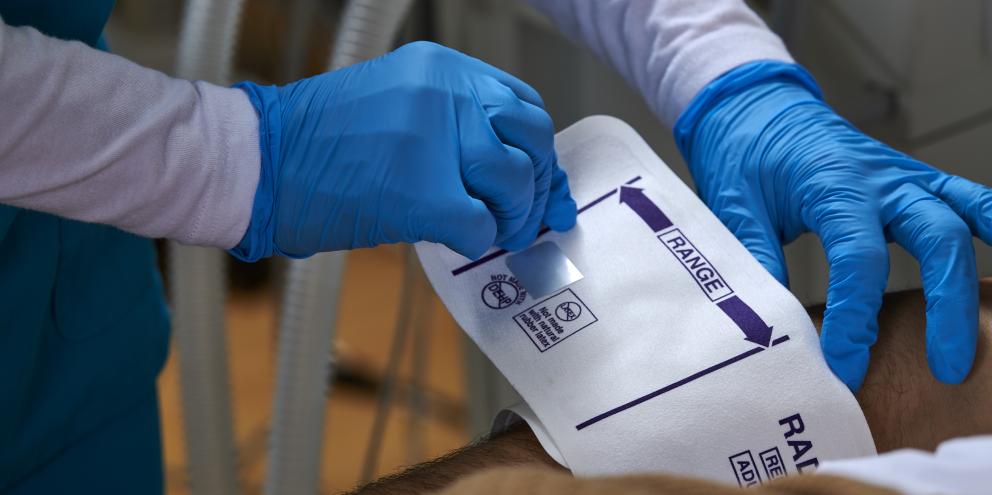Andrea Stebor, RN, Ph.D., Rana F. Mikhail, Ph.D.
Introduction
The purpose of this clinical study was to determine the accuracy of the DINAMAP™ SuperSTAT blood pressure technology in adult/pediatric subjects according to the ANSI/AAMI SP-10:2002 Standard. In adults and children, SuperSTAT NIBP determinations acquired concurrently with the ECG parameter will report a determination in the presence of an irregular heart rhythm. Systolic, diastolic, mean arterial pressure (MAP), and pulse rate (PR) were compared to intraarterial blood pressure (IBP). The studies took place in cardiac catheterization labs. Institutional Review Board (IRB) approvals were granted and informed consent was obtained.
Method
Data were collected according to the ANSI/AAMI SP-10:2002 Standard specifications, utilizing static and dynamic calibration procedures to ensure the accuracy of the IBP. A computer program recorded the SuperSTAT NIBP simultaneously with the IBP. A sample of 28 adult/pediatric subjects (minimum age 4.02 years, maximum age 80.1 years) was in the data analysis. Four sizes of CRITIKON™ DURACUF™ blood pressure cuffs were used, child, small adult, adult, and large adult. Five subjects had atrial fibrillation. This was demonstrated by an irregular rhythm, inconsistent R-R interval, and absence of P waves on their ECG waveforms from the reference monitor in the cardiac catheterization unit. Every NIBP determination from these five subjects was reported in the presence of an irregular heart rhythm.
Results
The differences between the SuperSTAT algorithm and the IBP reference were analyzed according to the ANSI/ AAMI SP-10:2002 Standard. see Table 1.

Conclusion
The SuperSTAT NIBP algorithm met the accuracy specifications of ± 5 mmHg for mean difference and ≤ 8 mmHg standard deviation of the ANSI/AAMI SP-10:2002 Standard for the adult/pediatric population.








